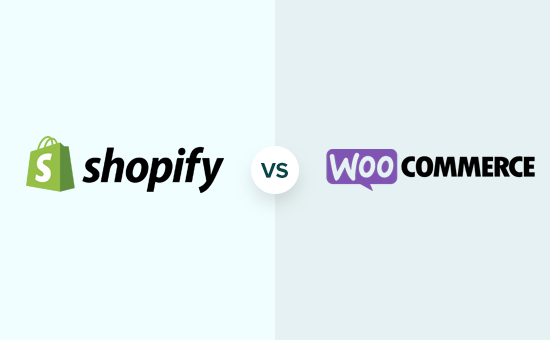When it comes to building an e-commerce store, selecting the right platform is crucial for your online business. Two leading options, WooCommerce and Shopify, offer powerful solutions tailored specifically for e-commerce. In this article, we will compare WooCommerce and Shopify across various aspects to help you make an informed choice for your e-commerce venture.
- Flexibility and Customization: WooCommerce: Built as a WordPress plugin, WooCommerce provides extensive flexibility and customization options. It leverages the power of WordPress, allowing you to create a highly customizable online store. With thousands of themes and plugins available, you can personalize your store’s design, features, and functionality to align with your brand and business requirements.
Shopify: Shopify offers a user-friendly interface with a wide range of professionally designed themes and templates. While customization options may not be as extensive as WooCommerce, Shopify’s themes are optimized for e-commerce, ensuring a seamless shopping experience. It also provides a robust app store, allowing you to enhance your store’s capabilities with additional features.
- Ease of Use: WooCommerce: As a plugin for WordPress, WooCommerce requires a basic understanding of WordPress functionality. If you are already familiar with WordPress, managing your store with WooCommerce will be intuitive. However, for beginners, there may be a slight learning curve to grasp the WordPress ecosystem and utilize the plugin effectively.
Shopify: Shopify is renowned for its user-friendly interface, making it ideal for beginners or non-technical users. It provides a straightforward setup process, intuitive store management, and a drag-and-drop interface. With Shopify, you can quickly build and manage your online store without extensive technical knowledge.
- Pricing and Costs: WooCommerce: WooCommerce itself is a free plugin, but you will need to consider costs for web hosting, domain registration, and additional premium themes or plugins. While it offers more flexibility in terms of cost control, keep in mind that expenses can vary depending on your chosen hosting provider and the premium add-ons you opt for.
Shopify: Shopify offers various pricing plans, starting from basic to advanced tiers. The plans encompass hosting, security, and support, simplifying cost management. While Shopify has monthly fees, it provides a comprehensive e-commerce solution without the need for separate hosting or additional third-party plugins.
- Scalability: WooCommerce: WooCommerce is highly scalable and suitable for businesses of all sizes. Leveraging the power of WordPress, it can accommodate the growth of your online store as your business expands. With its extensive plugin ecosystem, you can add advanced functionalities and features to meet your evolving needs.
Shopify: Shopify is built to handle scalability and can accommodate businesses of various sizes. It offers robust infrastructure, ensuring stability and performance even during peak traffic. With Shopify, you don’t have to worry about server management or technical scalability aspects, allowing you to focus on growing your business.
- SEO Capabilities: WooCommerce: Being built on WordPress, WooCommerce inherits its strong SEO capabilities. It provides various SEO plugins and tools that enable you to optimize your store’s metadata, URLs, and content. With WooCommerce, you have more control over SEO elements and can leverage the power of WordPress’s SEO-friendly structure.
Shopify: Shopify offers built-in SEO features that allow you to optimize your store’s metadata, titles, and URLs. While it may not provide the same level of customization and control as WooCommerce, Shopify ensures basic SEO practices are implemented to improve your store’s visibility in search engine rankings.
Conclusion: Choosing between WooCommerce and Shopify depends on your specific e-commerce needs, budget, customization preferences, and technical expertise. WooCommerce offers extensive flexibility, scalability, and customization options, making it suitable for businesses seeking full control and leveraging WordPress’s ecosystem. On the other hand, Shopify provides a user-friendly interface, comprehensive hosting, and support, making it an excellent choice for beginners or those who prefer a streamlined and hassle-free e-commerce experience. Consider your priorities, long-term goals, and desired level of control to determine which platform aligns best with your business requirements. Ultimately, both WooCommerce and Shopify have proven to be reliable solutions for building successful online stores, so choose the platform that empowers you to create a compelling e-commerce presence and drives your business towards growth and success.





